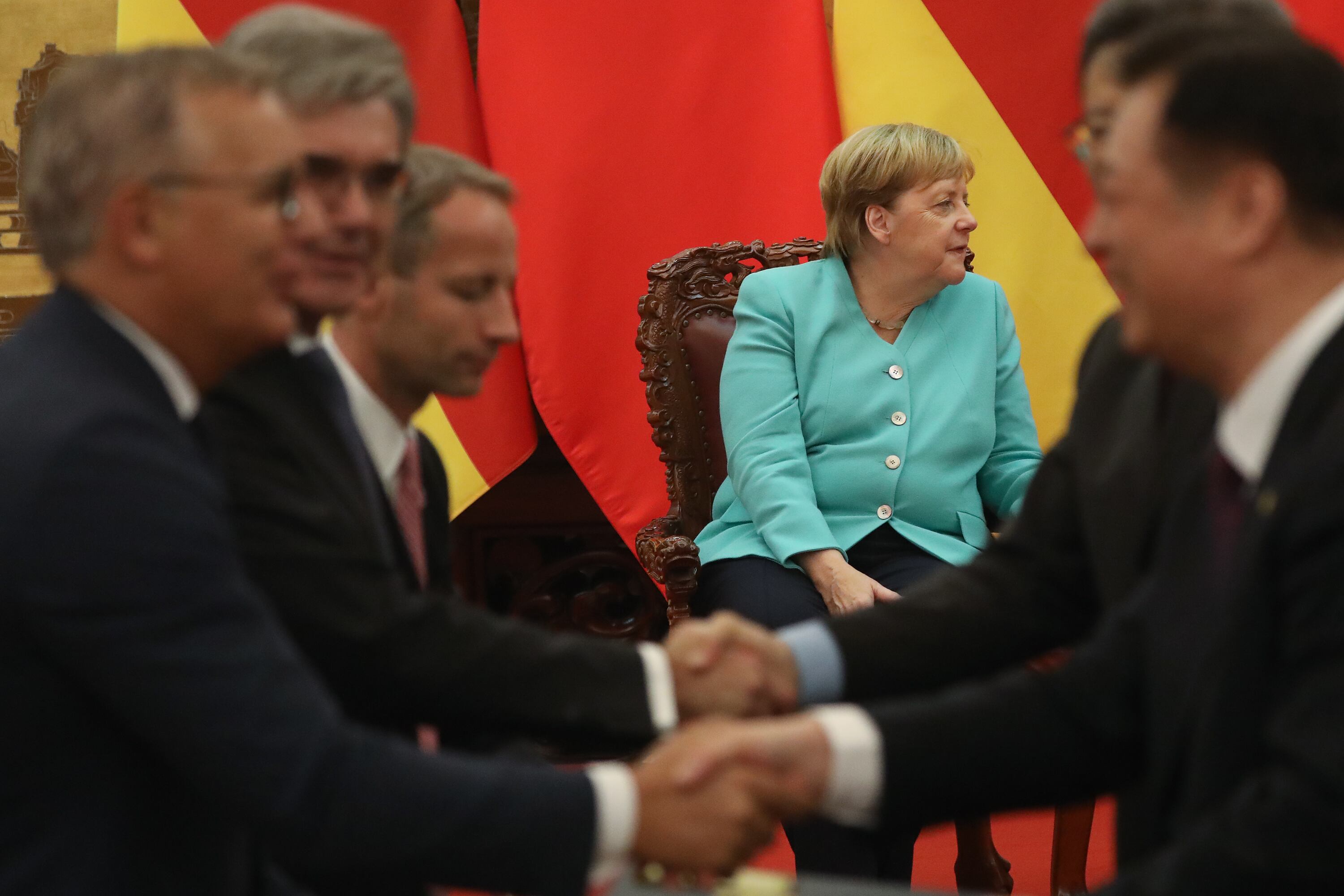WASHINGTON ― Nearly two dozen Republican lawmakers are calling on President Joe Biden to engage with allies on emerging technologies like 5G networking and artificial intelligence in the face of China’s advancements.
House Armed Services Committee ranking member Mike Rogers, House Foreign Affairs Committee ranking member Mike McCaul, and House Science, Space and Technology Committee ranking member Frank Lucas signed a letter to Biden urging him to maximize alliances to counter “China’s vision for tech authoritarianism and protect our own economic and national security interests.”
Rep. Elise Stefanik, R-N.Y., led the Jan. 27 letter, signed by 23 House Republicans.
The message to Biden signals an avenue for bipartisan cooperation, just days after Secretary of State Antony Blinken appeared supportive of U.K. Prime Minister Boris Johnson’s efforts to forge a D-10 group of democracies ― South Korea, India and Australia, plus the G-7 nations ― to cooperate on 5G and vulnerable supply chains.
In his confirmation hearing last week, Blinken said: “Bringing concerned countries together, the digital democracies together in an appropriate forum, is the place to start.”
“I don’t want to minimize the challenge. We obviously have disagreements among democracies about a lot of profound questions about how technology is used, so we’ve got some work to do just to get our own collective house in order,” he said.
Western allies, under pressure from President Donald Trump, agreed to exclude Chinese tech giant Huawei from their 5G networks, claiming an espionage risk, something the company has denied. Since then, the European Union signed a long-promised investment deal with China last month despite the public concerns from the incoming Biden administration.
RELATED

The Republican lawmakers, referencing Johnson in their letter, recommended raising the issue of China’s tech authoritarianism through the G-7 and NATO ― but also expanding engagements with allied democracies, and creating and hosting new international groups dedicated to democratic cooperation on technology.
They also called for the development of an allied network to encourage cooperation among companies in allied states to scale emerging technologies, and for the U.S. to help allies establish governmental bodies like the Committee on Foreign Investment in the United States to review foreign investments and prevent the transfer of allied technologies.
McCaul, who chaired the House’s Republican-only China Task Force, called on Biden to prioritize investments in domestic manufacturing of next-generation semiconductor chips in his expected infrastructure plan. McCaul has sponsored legislation to boost funding for basic research.
“We must work with our allies to ensure that our supply chain is secure and the future of technology is safely out of the hands of the [Chinese Communist Party],” McCaul said in a statement.
Democratic lawmakers have also raised alarms over China’s development of emerging technologies. After a report last month that Huawei tested AI software that could recognize Uighur minorities and alert police, Democratic Sen. Bob Menendez, the incoming Senate Foreign Relations Committee chairman, tweeted the following:
“A shocking reminder that #China continues to flout the ethical development of emerging technologies. The US must lead an effort with our allies to ensure the proper use of the digital domain predicated on the values of openness, stability, security, & protection of human rights.”
Joe Gould was the senior Pentagon reporter for Defense News, covering the intersection of national security policy, politics and the defense industry. He had previously served as Congress reporter.








